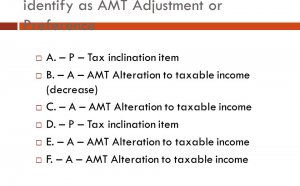
Financial Accounting interview questions
 With the start of a new academic year, we know that finance interviews are again at the forefront of many of your minds. Over the next few months, we’ll be publishing most frequently asked technical finance interview questions and answers across a variety of topics – accounting (in this issue), valuation, corporate finance – to get you prepared.
With the start of a new academic year, we know that finance interviews are again at the forefront of many of your minds. Over the next few months, we’ll be publishing most frequently asked technical finance interview questions and answers across a variety of topics – accounting (in this issue), valuation, corporate finance – to get you prepared.
Before we get to accounting questions, here are some interview best practices to keep in mind when getting ready for the big day.
- Be prepared for technical questions. Many students erroneously believe that if they are not finance/business majors, then technical questions do not apply to them. On the contrary, interviewers want to be assured that students going into the field are committed to the work they’ll be doing for the next few years, especially as many finance firms will devote considerable resources to mentor and develop their new employees.
- One recruiter we’ve spoken to said “while we do not expect liberal arts majors to have a deep mastery of highly technical concepts, we do expect them to understand the basic accounting and finance concepts as they relate to investment banking. Someone who can’t answer basic questions like ‘walk me through a DCF’ has not sufficiently prepared for the interview, in my opinion”.
- Another added, “Once a knowledge gap is identified, it’s typically very difficult to reverse the direction of the interview.”
- Keep each of your answers limited to 2 minutes. Longer answers may lose an interviewer, while giving them additional ammunition to go after you with more complicated question on the same topic.
- It’s ok to say “I don’t know” a few times during the interview. If interviewers think that you’re making up answers, they’ll continue probing you further, which will lead to more creative answers, which will lead to more complicated questions and a slow realization by you that interviewer knows that you don’t really know. This will be followed by uncomfortable silence. And no job offer.
Now, on to Accounting Questions
Accounting is the language of business, so don’t underestimate the importance of accounting questions. Some are easy, some are more challenging, but of all of them allow interviewers to gauge your knowledge level without the need to ask more complex valuation/finance questions.Below we have selected most common accounting questions you should expect to see during the recruiting process.
Q: Why do capital expenditures increase assets (PP&E), while other cash outflows, like paying salary, taxes, etc., do not create any asset, and instead instantly create an expense on the income statement that reduces equity via retained earnings?
A: Capital expenditures are capitalized because of the timing of their estimated benefits – the lemonade stand will benefit the firm for many years. The employees’ work, on the other hand, benefits the period in which the wages are generated only and should be expensed then. This is what differentiates an asset from an expense.
Q: Walk me through a cash flow statement.
A. Start with net income, go line by line through major adjustments (depreciation, changes in working capital and deferred taxes) to arrive at cash flows from operating activities.
- Mention capital expenditures, asset sales, purchase of intangible assets, and purchase/sale of investment securities to arrive at cash flow from investing activities.
- Mention repurchase/issuance of debt and equity and paying out dividends to arrive at cash flow from financing activities.
- Adding cash flows from operations, cash flows from investments, and cash flows from financing gets you to total change of cash.
- Beginning-of-period cash balance plus change in cash allows you to arrive at end-of-period cash balance.
Q: What is working capital?
A: Working capital is defined as current assets minus current liabilities; it tells the financial statement user how much cash is tied up in the business through items such as receivables and inventories and also how much cash is going to be needed to pay off short term obligations in the next 12 months.
Q: Is it possible for a company to show positive cash flows but be in grave trouble?
A: Absolutely. Two examples involve unsustainable improvements in working capital (a company is selling off inventory and delaying payables), and another example involves lack of revenues going forward.in the pipeline
Q: How is it possible for a company to show positive net income but go bankrupt?
A: Two examples include deterioration of working capital (i.e. increasing accounts receivable, lowering accounts payable), and financial shenanigans.
Q: I buy a piece of equipment, walk me through the impact on the 3 financial statements.
A: Initially, there is no impact (income statement); cash goes down, while PP&E goes up (balance sheet), and the purchase of PP&E is a cash outflow (cash flow statement)
Over the life of the asset: depreciation reduces net income (income statement); PP&E goes down by depreciation, while retained earnings go down (balance sheet); and depreciation is added back (because it is a non-cash expense that reduced net income) in the cash from operations section (cash flow statement).
Q: Why are increases in accounts receivable a cash reduction on the cash flow statement?
A: Since our cash flow statement starts with net income, an increase in accounts receivable is an adjustment to net income to reflect the fact that the company never actually received those funds.
Q: How is the income statement linked to the balance sheet?
A: Net income flows into retained earnings.
Q: What is goodwill?
A: Goodwill is an asset that captures excess of the purchase price over fair market value of an acquired business. Let’s walk through the following example: Acquirer buys Target for $500m in cash. Target has 1 asset: PPE with book value of $100, debt of $50m, and equity of $50m = book value (A-L) of $50m.
- Acquirer records cash decline of $500 to finance acquisition
- Acquirer’s PP&E increases by $100m
- Acquirer’s debt increases by $50m
- Acquirer records goodwill of $450m
Q: What is a deferred tax liability and why might one be created?
A: Deferred tax liability is a tax expense amount reported on a company’s income statement that is not actually paid to the IRS in that time period, but is expected to be paid in the future. It arises because when a company actually pays less in taxes to the IRS than they show as an expense on their income statement in a reporting period.
Differences in depreciation expense between book reporting (GAAP) and IRS reporting can lead to differences in income between the two, which ultimately leads to differences in tax expense reported in the financial statements and taxes payable to the IRS.
Q: What is a deferred tax asset and why might one be created?
A: Deferred tax asset arises when a company actually pays more in taxes to the IRS than they show as an expense on their income statement in a reporting period.
Share this Post
Related posts
Financial Accounting review questions
The financial accounting and reporting (FAR) test on the CPA exam has the same format as the auditing test. You have 4 hours…
Read MoreFinancial Accounting Test questions
Here is a free basic accounting test to check your understanding of the section on the basic accounting concepts. This quiz…
Read More










